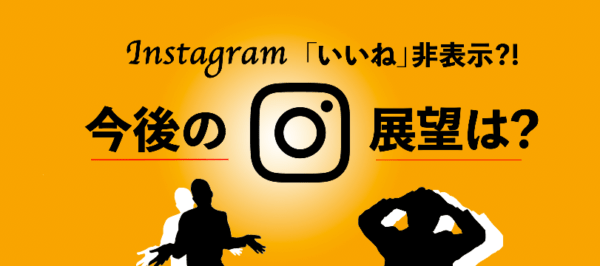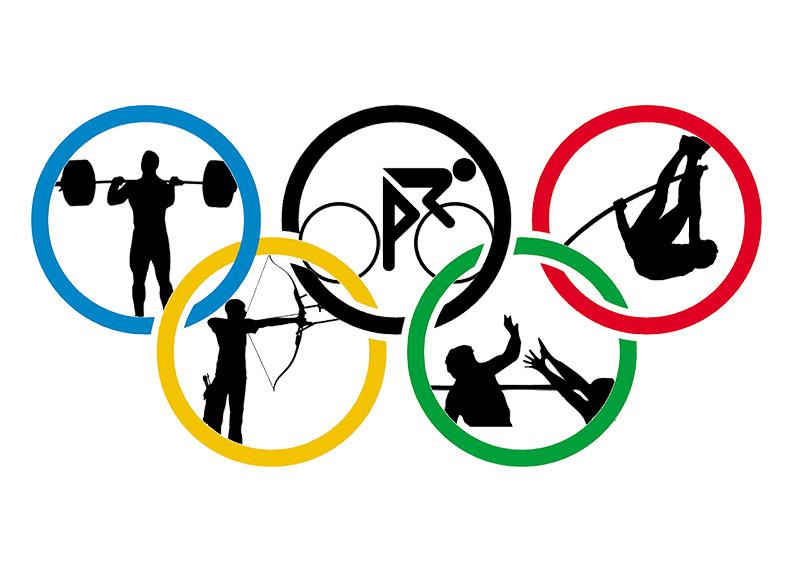People like to value things with numbers. Milk price (1 gallon 3.55 dollars = about 390 yen), movie evaluation (89% on the evaluation site "Rotten Tomatoes"), value of one hour labor (California minimum wage is 15 dollars per hour = about 1,650 yen) And so on.
On the other hand, there is also a value that cannot be expressed numerically. The eyes of two people staring at each other at a wedding ceremony, and a piece of fun vacation. Still, on social media, numbers can add value to these moments. The number of likes.
Double-tapping an image in an Instagram feed doesn't make a payment, but it has the same meaning as currency. The value of a post, video, or even an individual page as a whole will be shown by how many times it has been viewed and rated.
Social media giants have been worried about the incentives their services create for several years. Will “likes” help young people compare themselves to celebrities and friends, damaging their self-esteem? Does the presence of "likes" trigger angry and hostile posts and sexually radical posts? "Like" is a bot or an organized campaign, and it seems that it is very easy to operate.
Many of the major platforms have piloted efforts to hide or obscure this type of indicator. Still, it still remains everywhere in digital life.
Under these circumstances, Instagram's head of business, Adam Mosseri, decided that it was unreasonable to eliminate "likes" altogether. People like to be liked.
Needless to say, "likes" involve influencers and brands to support the $ 1 billion economy. And Instagram, which has been experimenting with abolishing likes for several years, announced at the end of May that it would leave the choice to users. From now on, the number of likes will be displayed by default, but you will be able to choose to hide the posts displayed in the feed and the likes of your own posts.
Effect of "de-index"
Then what should I do? Personally, I recommend hiding "likes".
Personally, the first time I decided to break away from the metric was before 2019, when Instagram began piloting the ability to hide likes. A browser extension that can hide numbers such as the number of likes was prototyped on Instagram and Twitter, so I tried using it.
To be honest, I was confused when I actually tried it. As you scroll the screen, your eyes automatically look for the number of likes. It's like looking for a price display when you have something you want to buy. After posting to the main feed, I was reflexively trying to refresh the page to see how it responded.
What I noticed there is the fact that I was always waiting for approval from others by posting. At the time, I spoke to Ben Grosser, who developed this "de-index" extension, and he said it was common.
"We're becoming more dependent on numbers, giving them more meaning than they really have," said Grosser, who suggested using this feature to let go of his habits. Did it. The only thing I could let go of was the desire to like.
Eventually, I was relieved to not display the number of "likes". When posting, I've started to focus more on sharing my status with my friends than on how easy it is to like. The act of scrolling through Instagram feeds has become more like walking around the museum at will. If there is a post that I like, I will stop and look at it for a while. There is no desire to know the price attached.

The glosser de-index feature hasn't been introduced in Twitter or Instagram apps, but the extension is still in the laptop. For the first time in a world of no value, I was free.
Since the start of the "experiment" of de-indexing, various voices have been raised about how the desire to "like" distorts human behavior on the Internet.
For example, in the documentary film Fake Famous, journalist Nick Bilton picks three participants who want to be famous and uses artificial hands to increase their followers and likes. go. Eventually, the three are chased by inflating these numbers and are swallowed.
Participants who want to be influencers themselves know that the "likes" they get on their posts are "fake". Biltong is buying bots and boosting engagement. Even so, the participants who were raised by the fiction become different people who are not noticed by their family and friends in the real world.
Related article: The meaning of "famous" highlighted by a documentary film that makes up fake influencers
How to hide likes
So what does "like" bring to us in general? Researchers are divided on whether online engagement affects mental health. As one study published in May showed, it may be premature to reach a conclusion at this point.
However, if you pursue the numbers, what you post (or not) will still depend on it. Grosser, who has been studying these de-indicators for 10 years, said, "When the visible numbers disappeared, how was the behavior influenced by the existence of the numbers almost automatically until then? You will notice it. " People do something to look good on Instagram, not just for themselves.
Grosser concludes that Instagram's decision is "not motivated." He thinks he hasn't stepped in to change his attitude of relying on numbers as an indicator. "Instagram has been urging users to focus on numbers for over a decade. Changing the distance from numbers required essentially rethinking the definition and way of the platform."
It's easy to hide likes from other people's posts. You can change the settings from "Posts" by opening "Privacy Settings". On the other hand, it takes a little more work to hide the likes of your post. At this stage, there is no setting to always hide the likes of your posts. To hide individual posts, select Hide from "Detailed Settings". You have to do this for each post.
Things that cannot be valued by numbers
Feeds without likes are nothing revolutionary and do not significantly shake the social media economy. Instagram's algorithms are still based on likes. Even if you don't show it, it affects what you and other users see in your feed. And on many other platforms, including the late TikTok, likes continue to shine.
Personally, I will continue to like Instagram without any likes. I want to enjoy the brilliant post-Corona world after vaccination without worrying about the "performance" of my post.
This summer again, we may be able to get close enough to meet our friends. Would you like to post a piece of summer with such friends on Instagram? May do. But I don't want to be able to drive such memories and evaluate them numerically. There are some things that cannot be valued by numbers.
* Click here for articles related to social media by "WIRED". Click here for related articles on Instagram.
Culture
The meaning of "famous" highlighted by a documentary film that makes up fake influencers
Culture
Just a photo of an egg thus broke Instagram's Like record
Culture
Does that "Like" have any meaning? The essence of communication seen in the "obligatory reaction" of SNS
INFORMATION INFORMATION
Under recruitment of WIRED Japanese version "membership" members who can also participate in limited events!
"WIRED SZ Membership" is a member service that delivers a selection of long leads (feature articles) packed with insights for the next 10 years according to weekly themes. The exciting service, which can participate in the weekly members-only event, is running a one-week free trial!Click here for details







